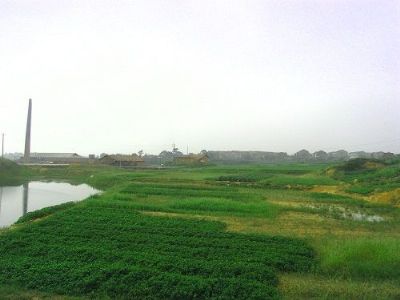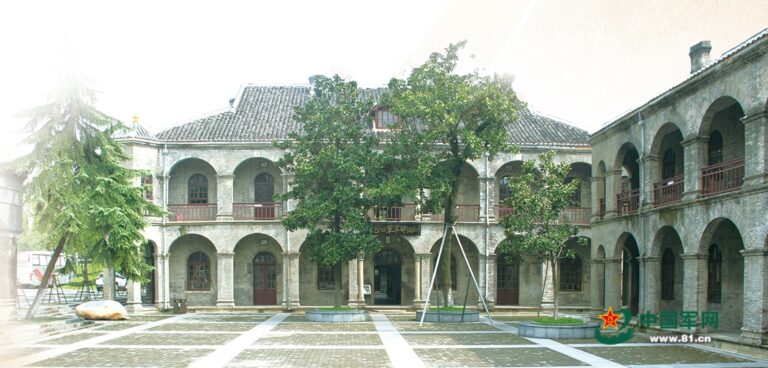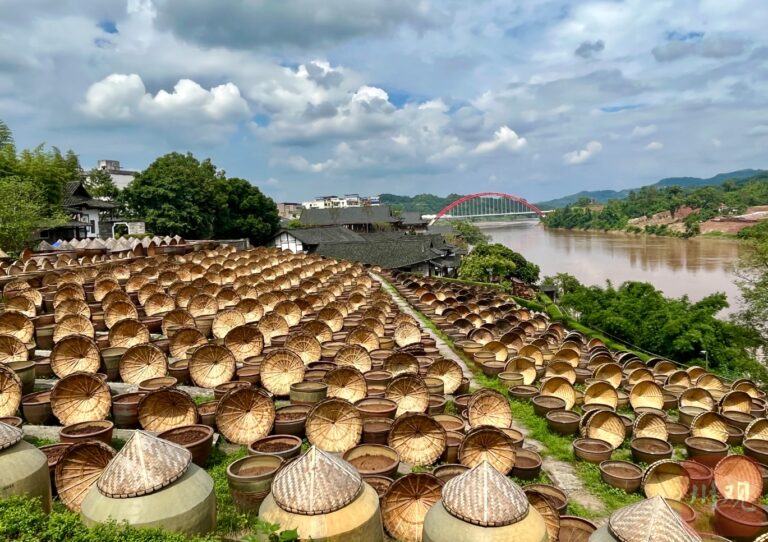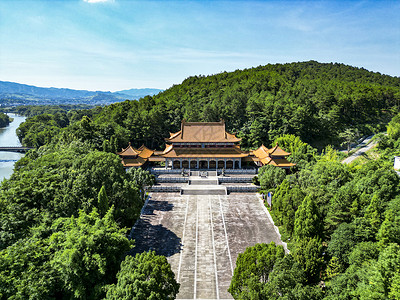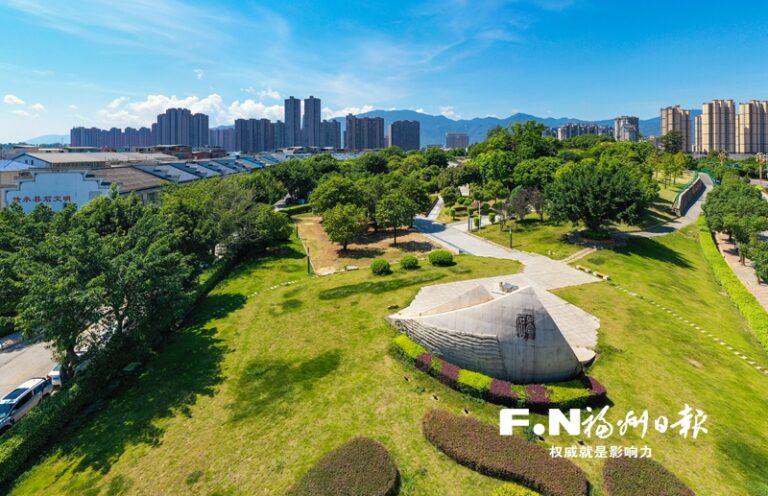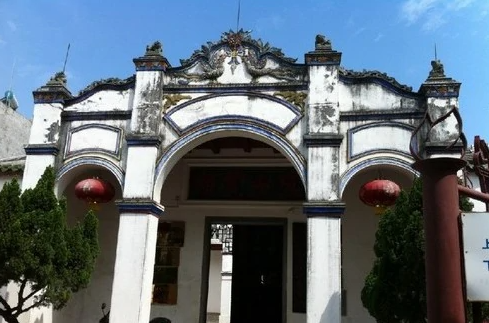Discover the Serenity of Taian: A Journey to Yanzi Miao He Yanlin
An Essential Guide to Visiting Taian Ningyang Yanzi Miao He Yanlin
In This Guide
- An Essential Guide to Visiting Taian Ningyang Yanzi Miao He Yanlin
- The Rich History of Taian Ningyang Yanzi Miao He Yanlin
- Main Highlights: What to See at Taian Ningyang Yanzi Miao He Yanlin
- Planning Your Visit: A Practical Guide
- Tickets, Hours, and Booking
- How to Get There
- Local Cuisine and Accommodation
- Frequently Asked Questions
- Final Thoughts on Your Trip
Nestled in the serene countryside of Shandong province, the Taian Ningyang Yanzi Miao He Yanlin, or Yanzi Temple and Yanzi Forest, offers a captivating journey into Chinese cultural heritage. This remarkable site, located in the picturesque village of Sigao, is not only a testament to architectural grandeur but also an enduring tribute to one of Confucius’s most revered disciples, Yan Hui.
The temple, known as Fusheng Temple, serves as a sacred space dedicated to honoring Yan Hui, who is celebrated for his wisdom and virtue. Established in 1594 during the Ming Dynasty, the temple complex has expanded over the centuries to encompass an impressive 23,000 square meters, showcasing a blend of architectural styles from the Yuan, Ming, and Qing dynasties. With 24 buildings and over 150 rooms, it is adorned with intricate inscriptions and surrounded by ancient trees that whisper tales of history.
Recognized as a National Key Cultural Relic Protection Unit in 2013, Yanzi Temple stands as a vital link to the past, attracting scholars, history enthusiasts, and travelers alike. Visitors can immerse themselves in the serene atmosphere, exploring the harmonious integration of Confucian, Buddhist, and Taoist elements that reflect the rich tapestry of Chinese spiritual life.
Beyond the temple, the surrounding Yanzi Forest serves as a peaceful retreat, where nature and history intertwine, inviting reflection and tranquility. Whether you are drawn by a desire to delve into the depths of Confucian philosophy or simply seeking a picturesque escape, a visit to Yanzi Temple and Yanzi Forest promises an enriching experience that resonates with the spirit of ancient China.
The Rich History of Taian Ningyang Yanzi Miao He Yanlin
Nestled in the picturesque He Mountain Township of Ningyang County, Shandong Province, the Yanzi Temple, also known as the Fu Sheng Temple, stands as a testament to the rich cultural heritage of Confucianism in China. This historic site, which spans over 23,000 square meters, is dedicated to the veneration of Yan Hui (颜回), one of Confucius’s most esteemed disciples, who lived during the Spring and Autumn period (approximately 521–481 BCE).
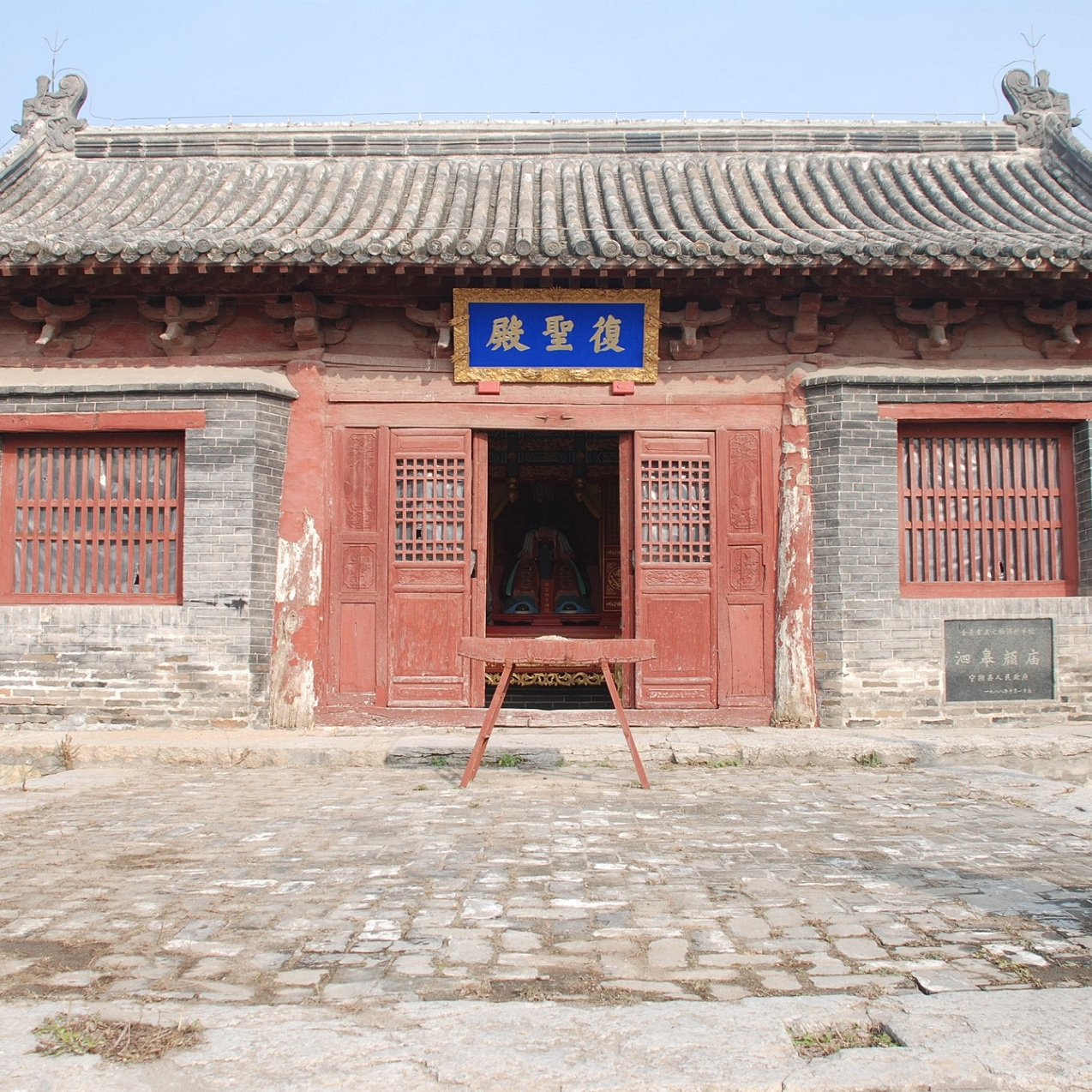
Taian Ningyang Yanzi Miao He Yanlin.
The origins of the Yanzi Temple can be traced back to 1275, during the Yuan Dynasty, when it was commissioned by Yan Wei, a descendant of the Yan clan, to honor his ancestor. The temple has undergone various renovations throughout the centuries, particularly in 1594 during the Ming Dynasty, when significant expansions established the structure’s current dimensions. The temple’s architectural style reflects influential elements from the Tang, Song, and Yuan dynasties, showcasing a blend of historical design practices that have endured through the ages.
The temple complex is not only notable for its impressive array of 24 buildings and 159 rooms but also for its 53 stone steles and over 500 ancient trees, which help to create a serene environment steeped in history. The main hall, where a statue of Yan Hui is enshrined, is particularly remarkable for its unique architectural features, including a sophisticated beam structure that exemplifies the ingenuity of ancient Chinese carpentry.
Recognized for its cultural significance, the Yanzi Temple was designated a national key cultural relic protection unit in 2013, further solidifying its status as a vital piece of Chinese heritage. Today, the temple attracts thousands of visitors each year, particularly during its annual temple fair, which combines religious observance with trade and cultural exchange.
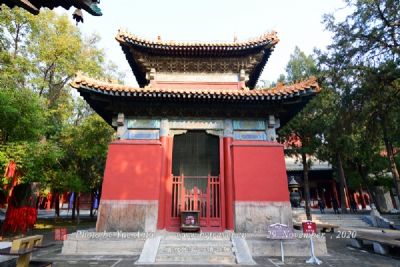
Taian Ningyang Yanzi Miao He Yanlin.
The surrounding Yanlin Forest, located adjacent to the temple, adds to the site’s historical allure, offering visitors a glimpse into the intertwined legacy of nature, spirituality, and Confucian ideals. As a focal point for both locals and tourists alike, the Yanzi Temple and its forest embody the enduring influence of Confucian thought and the reverence for moral integrity, wisdom, and scholarly pursuit that characterized Yan Hui’s life and teachings.
Main Highlights: What to See at Taian Ningyang Yanzi Miao He Yanlin
Nestled in the serene village of Siga within the He Mountain area of Ningyang County, the Yanzi Temple (颜子庙) and Yanzilin (颜林) stand as a testament to the rich cultural heritage and architectural splendor of ancient China. Dating back to the Yuan Dynasty in 1275, this revered site is dedicated to Yan Hui, one of Confucius’ most esteemed disciples, known for his wisdom and moral integrity.
Architectural Marvel
The temple complex spans over 23,000 square meters and features a harmonious blend of architectural styles from the Yuan, Ming, and Qing dynasties. With a total of 24 structures and 159 rooms, the intricate layout is a visual feast. The main hall, or “Dadian,” is particularly remarkable, showcasing the distinctive features of ancient Chinese architecture, including exquisite wooden beams and intricate stone carvings that reflect the craftsmanship of the time.
Cultural Significance
Yanzi Temple, also known as the “Restored Saint Temple,” serves as a crucial center for Confucian worship and education. It is a place where the teachings of Confucius and his disciples are celebrated, making it a vital location for scholars and visitors interested in Confucian philosophy. The temple hosts annual ceremonies and festivals that draw thousands of visitors, further enriching the local cultural landscape.
Lush Surroundings
The adjacent Yanzilin, or Yanzi Forest, enhances the tranquility of the site. This area is home to over 500 ancient trees, providing a serene environment that invites reflection and appreciation of nature. The forest not only adds to the spiritual atmosphere but also serves as a natural retreat for visitors seeking peace away from the bustle of modern life.
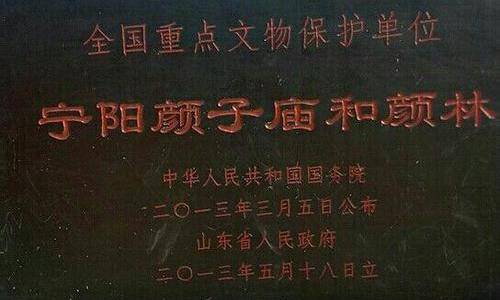
Taian Ningyang Yanzi Miao He Yanlin.
Historical Importance
Designated as a key national cultural relic protection site in 2013, Yanzi Temple and Yanzilin reflect the enduring legacy of the Yan family, whose descendants have resided in the area for generations. The site is a living record of the development of Confucianism in China and the historical evolution of architectural styles over centuries.
Visitor Experience
Today, the temple complex welcomes thousands of tourists each year, offering guided tours that delve into its historical and cultural significance. Visitors can marvel at the impressive architecture, participate in traditional ceremonies, and explore the lush landscapes that surround this sacred site. Whether you are a history enthusiast, a culture seeker, or simply in search of tranquility, Yanzi Temple and Yanzilin promise a captivating experience that connects you to the rich tapestry of Chinese heritage.
In summary, a visit to Yanzi Temple and Yanzilin is not just a journey through time; it is an immersion into the philosophical depths and artistic achievements of one of China’s most esteemed traditions.
Planning Your Visit: A Practical Guide
Practical Guide to Taian Ningyang Yanzi Miao He Yanlin
Visiting the Taian Ningyang Yanzi Miao He Yanlin, also known as the Yanzi Temple and Yanzilin, offers a unique opportunity to immerse yourself in the rich cultural heritage and history of Confucianism in China. This guide provides essential information for a fulfilling visit.
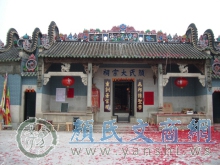
Taian Ningyang Yanzi Miao He Yanlin.
Location and Accessibility
Yanzi Temple and Yanzilin are located in Sigaocun Village, Heshan Township, Ningyang County, Taian City, Shandong Province. The site is approximately 30 kilometers from Taian’s city center and is easily accessible by car or public transportation. Local buses frequently run from Taian to Ningyang, making it convenient to reach this historical site.
Best Time to Visit
The ideal time to visit is during the spring and autumn months (April to June and September to November) when the weather is mild and comfortable. Additionally, the temple hosts an annual fair during the spring, attracting many visitors and providing a vibrant atmosphere that showcases local culture.
Entrance Fees
There is a nominal entrance fee to the Yanzi Temple, which helps maintain the site and its facilities. It is advisable to check for any updates on fees before your visit, as they may vary seasonally.
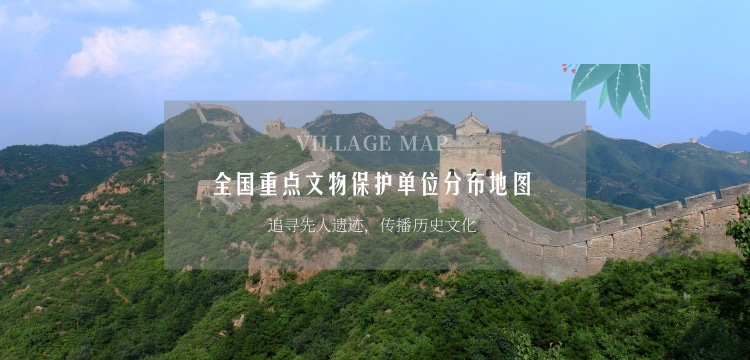
Taian Ningyang Yanzi Miao He Yanlin.
What to See
-
Yanzi Temple: This temple, dedicated to Yan Hui, one of Confucius’s most esteemed disciples, embodies traditional Chinese architecture and features structures dating back to the Yuan, Ming, and Qing dynasties. The main hall, adorned with intricate wooden beams and a grand statue of Yan Hui, is a highlight.
-
Cultural Relics: The site houses several ancient inscriptions, stone carvings, and over 500 ancient trees, some of which are centuries old, contributing to the area’s historical significance.
-
Surrounding Landscape: Nestled against the backdrop of Mount Tai, the temple grounds offer beautiful natural scenery, making it an excellent spot for photography and peaceful contemplation.
Facilities and Amenities
Visitors will find basic amenities such as restrooms and a small gift shop selling local crafts and souvenirs. There are also areas for visitors to sit and enjoy the serene environment. However, food options are limited within the temple grounds, so it’s advisable to bring snacks or plan to dine in nearby Ningyang after your visit.
Cultural Etiquette
When visiting the temple, it is important to observe local customs:
– Dress modestly and respectfully.
– Maintain a quiet demeanor, especially in prayer areas.
– Photography may be restricted in certain areas, so always check for signs indicating whether it is allowed.
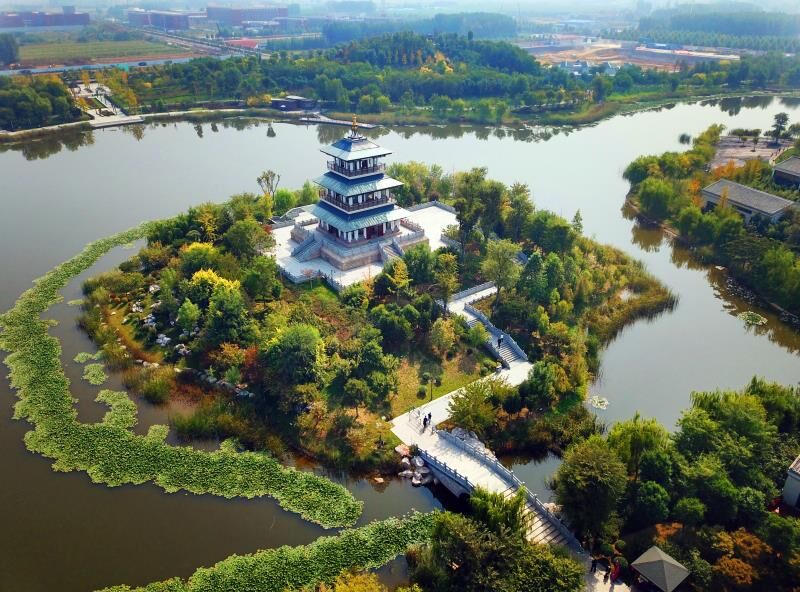
Taian Ningyang Yanzi Miao He Yanlin.
How to Get There
- By Car: If you are driving, take the G3 Beijing-Taipei Expressway and follow signs to Ningyang County. There is parking available near the temple.
- By Public Transport: Take a bus from Taian to Ningyang. From the Ningyang bus station, you may need to take a local taxi or ride-sharing service to reach the temple.
Nearby Attractions
Consider exploring other cultural sites in the area:
– Mount Tai: A UNESCO World Heritage site, famous for its stunning views and religious significance.
– Confucius Temple in Qufu: A bit further afield, but a must-visit for those interested in Confucian heritage.
Visitor Tips
- Arrive early in the day to avoid crowds, especially during weekends or holidays.
- Wear comfortable shoes, as exploration of the temple grounds may involve walking on uneven surfaces.
- Engage with local guides, who can provide in-depth insights into the history and significance of the site.
With its deep cultural roots and stunning architecture, the Yanzi Temple and Yanzilin offer a meaningful glimpse into China’s historical landscape. Whether you are a history buff, a cultural enthusiast, or simply seeking tranquility, this site is a must-visit on your journey through Shandong Province.
Tickets, Hours, and Booking
When planning your visit to the Taian Ningyang Yanzi Miao He Yanlin, it’s essential to know the ticketing details to ensure a smooth and enjoyable experience.
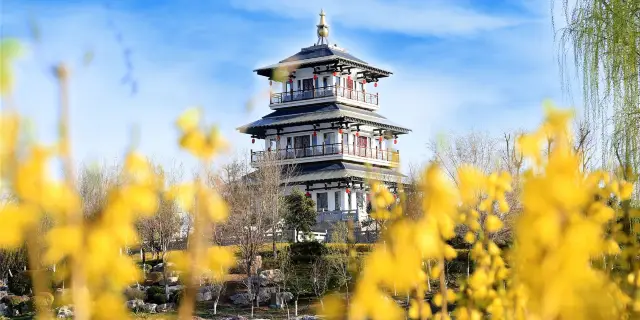
Taian Ningyang Yanzi Miao He Yanlin.
Ticket Information
Entry Fee:
Admission to the Yanzi Miao (Yanzi Temple) is typically free, allowing visitors to explore this historical site without the burden of an entry fee. However, special events or festivals may have associated costs, so it’s advisable to check ahead if you’re visiting during a peak time.
Opening Hours:
The temple and surrounding areas are generally open from 8:00 AM to 5:00 PM daily. Extended hours may be available during special occasions, such as the annual temple fair, which attracts many visitors.
Guided Tours:
For a deeper understanding of the cultural and historical significance of the site, guided tours are available. These typically require a small fee, and it’s recommended to book in advance, especially during busy seasons.
Special Events:
Throughout the year, the temple hosts various cultural activities and festivals that may require tickets. These events often include traditional performances, religious ceremonies, and local crafts exhibitions. Keep an eye on local tourism websites for updates on upcoming events.
Accessibility:
The Yanzi Miao is accessible to visitors, with pathways leading through the complex to accommodate those with mobility challenges. If you require assistance, it’s best to contact the site in advance.
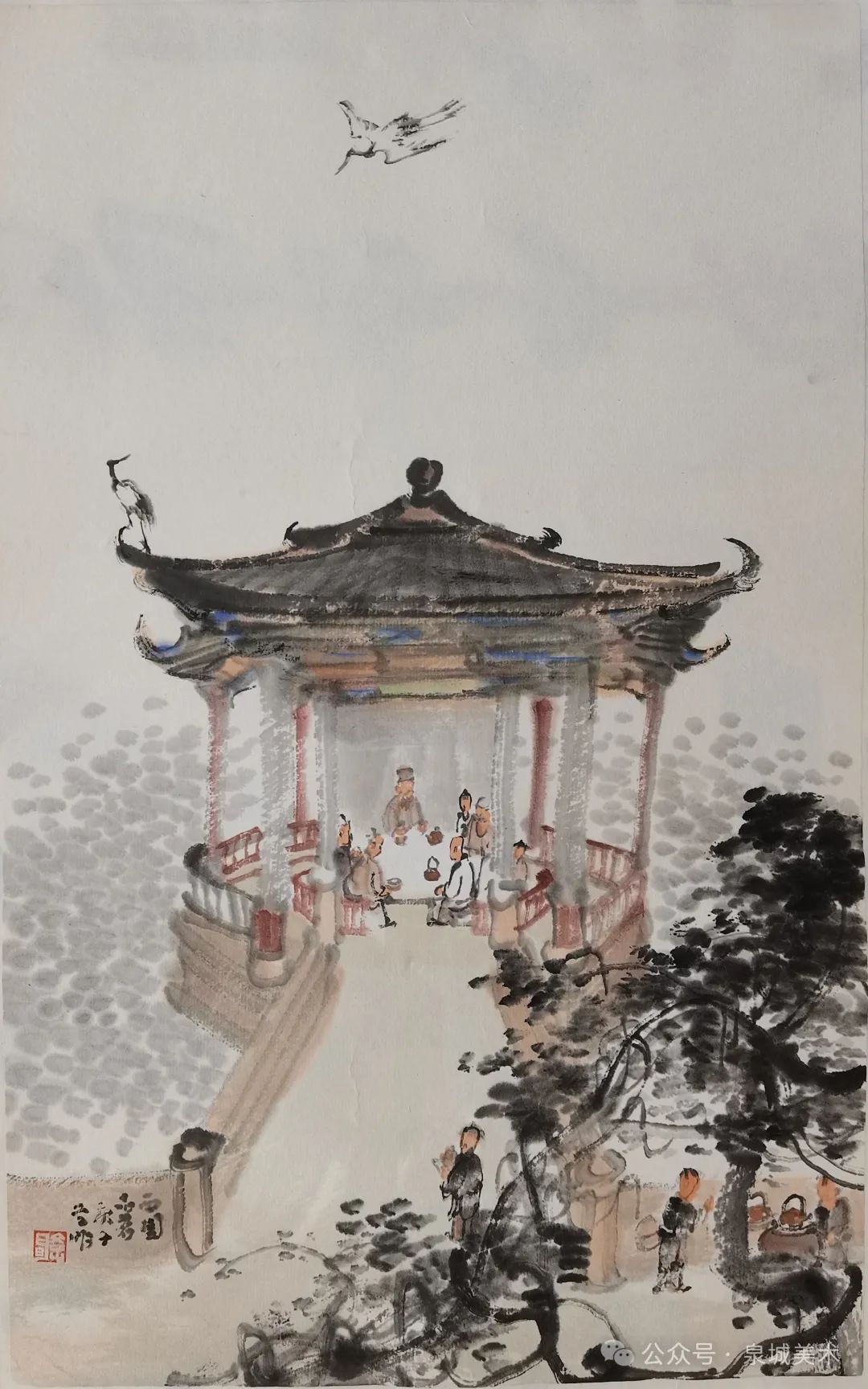
Taian Ningyang Yanzi Miao He Yanlin.
Tips for Visitors
- Plan Ahead: Check for any special events during your visit that may enhance your experience.
- Stay Hydrated: Bring water, especially during the warmer months, as you may spend considerable time exploring the extensive grounds.
- Respect Traditions: As this is a religious site, maintain a respectful demeanor, especially during ceremonies.
- Cultural Etiquette: Familiarize yourself with local customs and etiquette when visiting temples to ensure a respectful visit.
Whether you are a history buff, a culture enthusiast, or simply looking for a peaceful retreat, the Yanzi Miao offers a unique glimpse into China’s rich heritage without the hassle of ticket fees. Enjoy your visit!
How to Get There
Getting to Taian Ningyang Yanzi Miao He Yanlin, also known as the Yanzi Temple and Yanzilin, involves a variety of transportation options that cater to both local and international travelers. Located in the picturesque He Mountain Township, Siga Village of Ningyang County in Shandong Province, this historic site is easily accessible through several modes of transport.
By Air
The nearest major airport is Tai’an Airport (TAY), located approximately 30 kilometers (about 18 miles) from the Yanzi Temple. This airport has limited domestic flights, so international travelers may want to consider flying into Jinan Yaoqiang International Airport (TNA), which services a wider range of domestic and international flights. From Jinan, you can rent a car or take a bus to Tai’an, which is around 140 kilometers (about 87 miles) away.
By Train
Tai’an Railway Station serves as the closest major rail hub to the Yanzi Temple. This station is well-connected to major cities such as Beijing, Shanghai, and Jinan. Once you arrive at Tai’an Railway Station, you can take a local taxi or ride-sharing service to reach the temple, which is about 25 kilometers (15.5 miles) from the station.
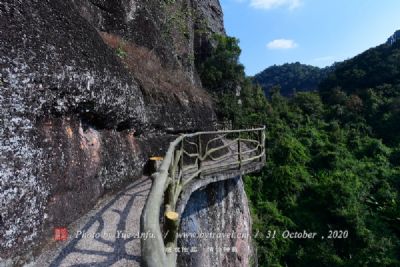
Taian Ningyang Yanzi Miao He Yanlin.
By Bus
There are several bus routes that connect Tai’an to Ningyang County, including direct services to Yanzi Temple. Buses run frequently throughout the day and are an economical choice for travelers. You can catch a bus from Tai’an’s main bus station. Be sure to check the schedule, as service frequency can vary, especially on weekends and holidays.
By Car
For those who prefer to drive, renting a car is a great option that provides flexibility in your travel itinerary. The Yanzi Temple is accessible via the G104 National Road and Jingfu Expressway. The drive from Tai’an to the temple typically takes around 40 minutes, depending on traffic conditions. The scenic countryside along the route adds to the overall travel experience.
Local Transportation
Once you arrive in the vicinity of the Yanzi Temple, local taxis and electric tricycles are available for short distances. Additionally, the temple complex itself is pedestrian-friendly, allowing visitors to explore the grounds at their leisure.
Conclusion
No matter how you choose to travel, reaching Taian Ningyang Yanzi Miao He Yanlin is straightforward and offers a glimpse into the rich cultural heritage of the region. With its convenient transportation options, visitors can easily immerse themselves in the history and beauty of this significant site.
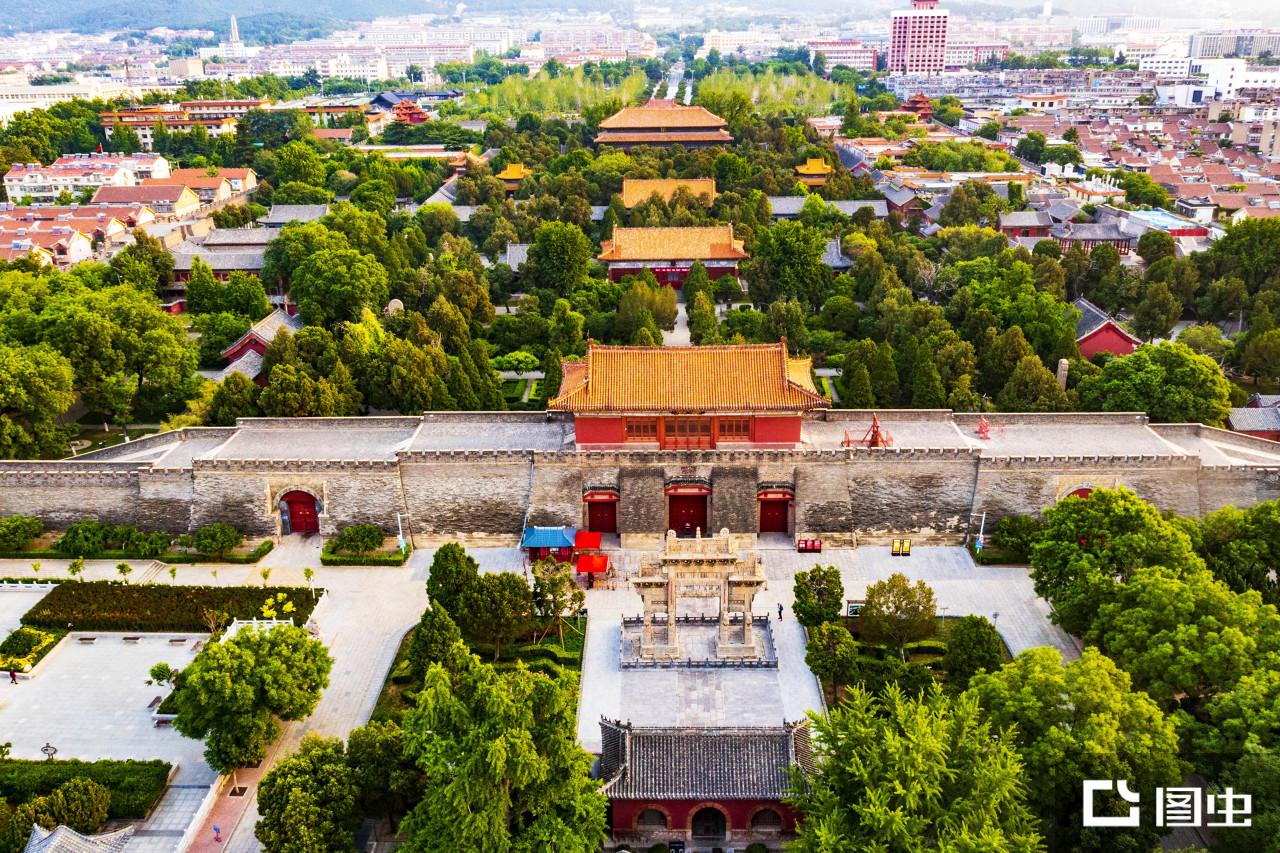
Taian Ningyang Yanzi Miao He Yanlin.
Local Cuisine and Accommodation
Nestled near the historical site of Ningyang Yanzi Miao He Yanlin, visitors can find a variety of culinary delights and comfortable accommodations to enhance their travel experience.
Culinary Delights
When exploring the culinary landscape of Ningyang, you will be treated to an array of local specialties that reflect the rich flavors of Shandong cuisine.
-
Ningyang Braised Chicken (宁阳红烧鸡) – A must-try dish, this local delicacy features chicken braised to tender perfection in a savory sauce, often accompanied by seasonal vegetables. Many restaurants in the area serve this dish with a unique twist that pays homage to traditional cooking methods.
-
Jinan-style Dumplings (济南饺子) – Just a short distance from Ningyang, Jinan is renowned for its dumplings. Taste various fillings, from pork and chives to shrimp and vegetables, each offering a delightful burst of flavor. Check out local eateries that specialize in handmade dumplings for an authentic experience.
-
Spicy Grilled Fish (香辣烤鱼) – For those who enjoy a bit of heat, grilled fish seasoned with spicy spices and herbs is popular among locals and visitors alike. Often served with a side of rice or flatbreads, this dish is perfect for sharing.
-
Local Snacks at Street Stalls – Don’t miss the opportunity to sample street food, which includes everything from savory pancakes to sweet rice balls. These quick bites are not only delicious but also a great way to immerse yourself in local culture.
Accommodation Options
After a day of exploring the Yanzi Miao and its surrounding landscapes, restful accommodation awaits you. Here are some recommended places to stay:
-
Ningyang International Hotel (宁阳国际大酒店) – This hotel offers modern amenities and comfortable rooms, making it an excellent choice for both business and leisure travelers. Guests can enjoy a restaurant on-site that serves local and international cuisine.
-
Shandong Yanzi Hotel (山东颜子酒店) – Located conveniently near the historical sites, this hotel features traditional Chinese decor and provides a cozy atmosphere. It’s an ideal base for those looking to delve deeper into the local culture.
-
Homestays in Suogao Village (泗皋村民宿) – For a more intimate experience, consider staying at a homestay in the nearby Suogao Village. Here, you can enjoy home-cooked meals and get a taste of local life while being surrounded by beautiful natural scenery.
-
Budget Hostels – For travelers on a budget, various hostels offer dormitory-style accommodations. These are perfect for meeting fellow travelers and sharing stories about your adventures in Ningyang.
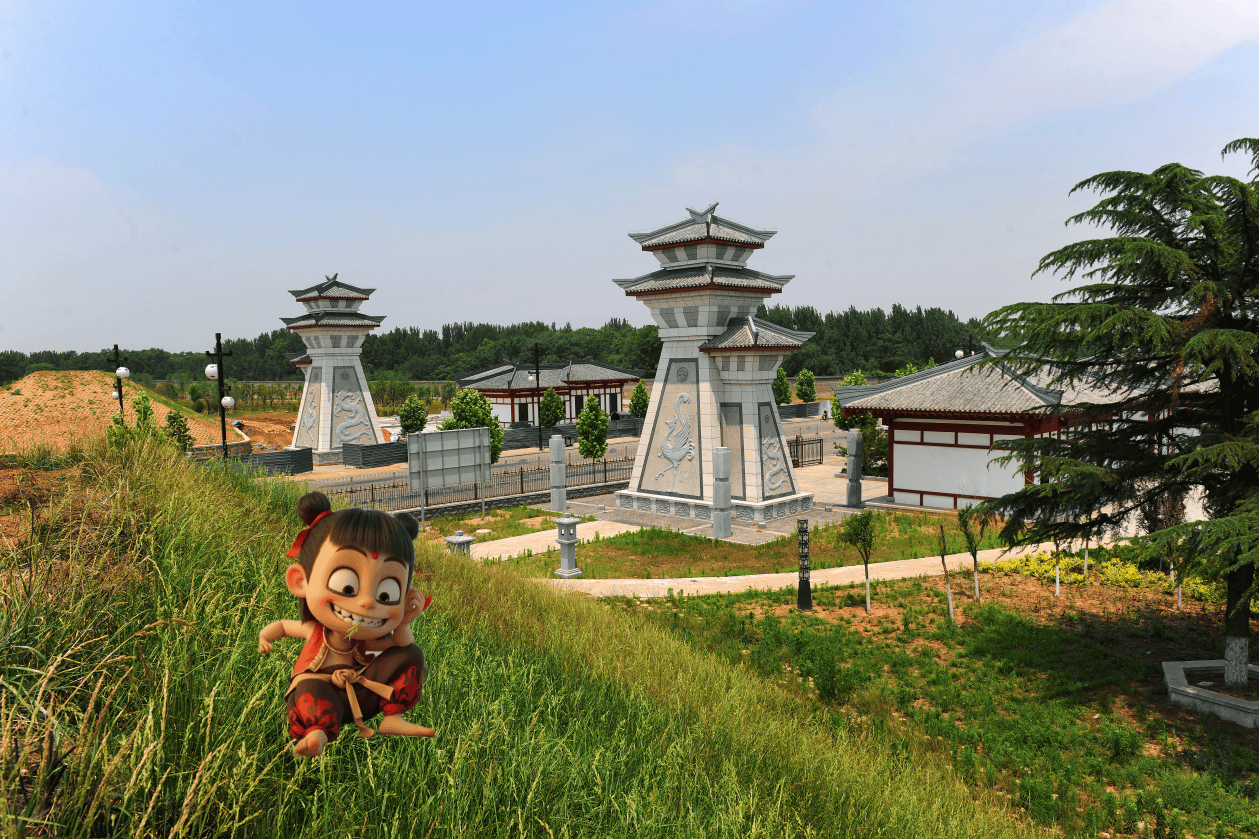
Taian Ningyang Yanzi Miao He Yanlin.
Whether you’re savoring local dishes or resting in comfortable accommodations, your visit to Ningyang Yanzi Miao He Yanlin promises to be both enriching and enjoyable.
Frequently Asked Questions
-
What is Taian Ningyang Yanzi Miao He Yanlin?
Taian Ningyang Yanzi Miao He Yanlin, also known as Yanzi Temple and Yanzilin, is a historical site located in Ningyang County, Shandong Province, China. It is dedicated to Yan Hui (Yanzi), a prominent disciple of Confucius, and features significant ancient architecture and cultural heritage. -
When was Yanzi Temple built?
Yanzi Temple was originally constructed in 1594 during the Ming Dynasty, although its roots date back to the 13th century when the ancestral hall for the Yan family was established in 1275. -
What can visitors expect to see at the site?
Visitors can explore a vast area of approximately 23,000 square meters, which includes 24 ancient buildings, numerous stone inscriptions, and over 500 ancient trees. The architectural style showcases elements from the Tang, Song, and Yuan dynasties. -
How do I get to Yanzi Temple?
Yanzi Temple is located in Sigaocun Village, Heshan Township, Ningyang County. It is accessible by road from major cities in the region, including Tai’an. Local transportation options, such as taxis or public buses, are available, but checking the latest routes and schedules is recommended. -
Is there an entrance fee for Yanzi Temple?
Yes, there is typically an entrance fee for visitors. However, fees may vary depending on the time of year or special events, so it’s advisable to check in advance before your visit. -
Are there any guided tours available?
Yes, guided tours are available at Yanzi Temple, which provide insights into the historical and cultural significance of the site. Visitors can inquire about tour options at the entrance or through local tourism information centers. -
What amenities are available for visitors?
The site offers basic visitor amenities, including restrooms and areas for relaxation. While food options may be limited within the temple grounds, there are local eateries nearby where visitors can enjoy traditional Shandong cuisine. -
Are there any annual events or festivals held at the temple?
Yanzi Temple hosts a large annual temple fair that features cultural activities, trade, and celebrations in honor of Yan Hui. This event attracts many visitors and is a great opportunity to experience local customs and traditions. Dates for the fair may vary, so check local listings for specific information.
Final Thoughts on Your Trip
As you conclude your journey through Taian’s Ningyang Yanzi Miao He Yanlin, take a moment to reflect on the rich tapestry of culture and history that this remarkable site embodies. The Yanzi Temple, dedicated to the esteemed Confucian disciple Yan Hui, offers more than just a glimpse into ancient architectural marvels; it serves as a poignant reminder of the enduring values of wisdom, respect, and community that have shaped Chinese civilization for centuries.
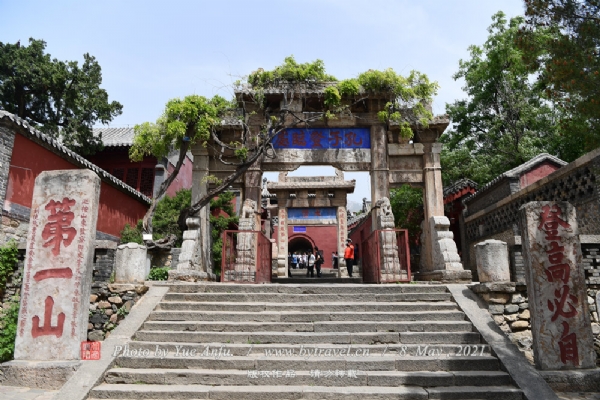
Taian Ningyang Yanzi Miao He Yanlin.
Walking through the serene grounds, adorned with ancient trees and intricate carvings, you can almost hear the whispers of scholars and philosophers who once sought enlightenment within these walls. The temple not only stands as a monument to Yan Hui’s legacy but also as a gathering place for celebrations and festivals that continue to strengthen local bonds.
Visitors will find that the Yanzi Temple and its surrounding landscapes provide a perfect backdrop for reflection and connection with both the past and the present. Whether you’re an avid historian, a cultural enthusiast, or simply seeking tranquility, this sacred site encourages exploration and appreciation of a heritage that is both profound and accessible.
As you leave, carry with you the spirit of inquiry and reverence that these hallowed grounds inspire. Let the lessons of humility and wisdom from the past guide you in your own journey, and may your experiences in Ningyang resonate long after your visit.
